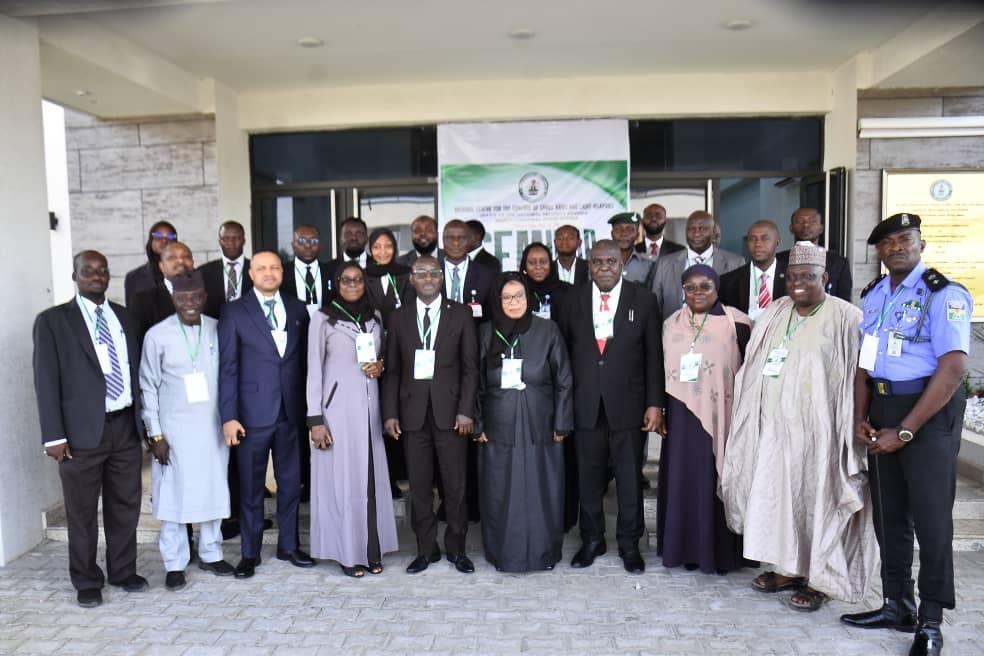Africa-Press – Nigeria. Security experts in Niger State have raised concerns over the alarming rate of small arms proliferation in Nigeria, citing its devastating impact on peace and stability in the country.
At a one-day seminar organized by the National Centre for the Control of Small Arms and Light Weapons (NCCSALW) North Central Zone in Minna, the experts discussed the Control of Small Arms and Light Weapons Act 2024 and the best practices in handling related cases.
They stated that effective governance, security sector reform, and addressing socio-economic issues are crucial to curb SALW proliferation and armed marauding in Nigeria.
The Director Legal Headquarters of NCCSALW, in a presentation, noted that the illicit trafficking of Small Arms and Light Weapons (SALW) has led to a series of conflicts, causing security challenges globally, and Nigeria is no exception.
“The country is facing a complex and multidimensional problem that affects nations, their people, and communities in diverse ways,” Onuegbu stated.
Onuregbu represented by SQN LDR Simeon Okochi Nyimeone highlighted key provisions of the Control of Small Arms and Light Weapons Act, 2024, which regulates the possession, sale, transfer, and manufacture of firearms and ammunition in Nigeria.
“These provisions include possession and licensing, responsibility of licensees, illicit trafficking, registration and database, manufacture and tracing, offences and prosecution, and public education.
“The Act prohibits illicit possession of certain firearms and ammunition, requires licenses for possession, and makes licensees responsible for the safe custody of firearms,” Onuegbu explained.
The Chief Judge of Niger State, Justice Halima Ibrahim Abdulmalik, emphasized the judiciary’s role in strengthening arms control through consistent legal interpretation and effective prosecution.
Professor A.B. Ahmed in his paper identified several challenges that may hinder the effective implementation of the Control of Small Arms and Light Weapons Act 2024, including difficulty in tracing illegal weapons, inadequate forensic capacity, corruption, and poor coordination among agencies.
He emphasized, ” these challenges can be addressed through strong legal frameworks, effective investigation, inter-agency collaboration, witness protection, and international cooperation”.
Also, Associate Professor Musa Emmanuel Umaru noted that the proliferation of SALW in Nigeria, particularly in the North Central Zone, has devastating implications for national security.
He explained that these arms, used for crime and permissible for law enforcement agencies, fall into the hands of armed marauders due to factors like geographical challenges, corruption, bad governance, poverty, and compromised security personnel.
Umaru identified armed marauders as criminal gangs involved in kidnapping, cattle rustling, and violence, operating in forest regions and exploiting vulnerabilities to create insecurity. He emphasized that the socio-traumatic implications of SALW use by these groups are severe, and urged effective action to address the issue.
The Zonal Director of NCCSALW, Abdul Adamu Eneche DDGSS (Rtd), in his address, highlighted the importance of strengthening the rule of law and inter-agency collaboration to address security challenges in the region.
For More News And Analysis About Nigeria Follow Africa-Press







